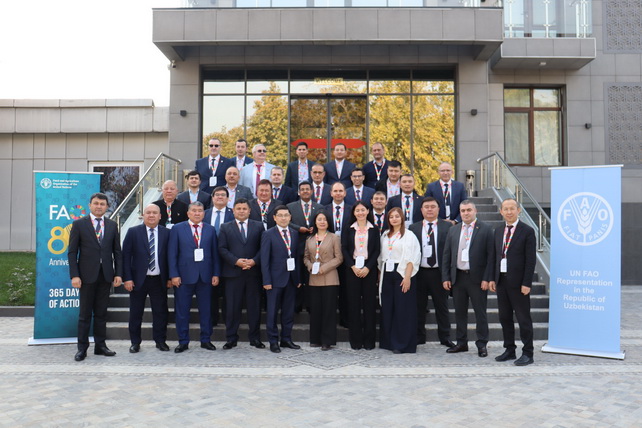
Uzbekistan Hosts Regional Seminar on Locust Control in the Caucasus and Central Asia
Uzbekistan Hosts Regional Seminar on Locust Control in the Caucasus and Central Asia
Tashkent, Uzbekistan (UzDaily.com) — From 10 to 14 November 2025, Tashkent is hosting a Regional Technical Seminar on Locust Control in the Caucasus and Central Asia (CCA).
The event brings together delegations from ten countries to strengthen early warning systems, improve coordination of actions, and exchange modern methods to minimize the risks of locust outbreaks.
The seminar is held under the FAO program “Enhancing the Effectiveness of National and Regional Locust Management in the CCA” with support from the Japan International Cooperation Agency (JICA).
Relevance of the Topic
In 2025, over 570,000 hectares of land in Uzbekistan are being treated against locusts, while approximately 3.9 million hectares are covered across the CCA region. The most vulnerable areas in the country are Kashkadarya, Jizzakh, and Surkhandarya regions. Rising temperatures and irregular rainfall create favorable conditions for locust reproduction, underscoring the need for effective monitoring and rapid response measures.
Participants and Key Issues
Delegations from Afghanistan, Kazakhstan, Kyrgyzstan, Tajikistan, Turkmenistan, Uzbekistan, Armenia, Azerbaijan, Georgia, and Russia are participating. Each country presents the results of its locust control campaigns in 2025 and discusses forecasts for 2026.
Key topics include conducting cross-border surveys, preparing and publishing regional locust bulletins, sharing and analyzing data using geographic information systems, and improving coordination mechanisms among countries.
New Technologies and Eco-Friendly Approaches
Countries are exploring expanded use of the biopesticide Metarhizium acridum and deploying drones for monitoring and treating affected areas. At the same time, discussions continue on reducing environmental and public health risks from chemical treatments, including the implementation of updated impact monitoring standards.
Regional Cooperation and Long-Term Resilience
The seminar also addresses long-term emergency preparedness plans, the development of national monitoring systems and specialist training programs (ASDC and CCALM), alignment of the regional program for 2026, and the establishment of a permanent locust coordination body in the CCA countries.
“A strong commitment from all stakeholders, including donors, is essential to maintaining progress and ensuring sustainable locust management at national and regional levels,” notes Shoki Al Dobai, Head of the FAO team on locust and transboundary plant pest and disease management.
Since its launch in 2011, the FAO program in the CCA has supported countries in preventing large-scale outbreaks, protecting crops, and strengthening the resilience of rural communities. The Tashkent seminar represents another step in enhancing joint action and strengthening regional preparedness.